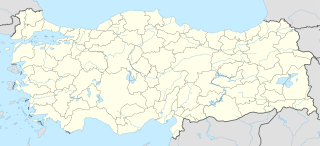 W
WThe 2016–present purges in Turkey is a series of purges by the government of Turkey enabled by a state of emergency in reaction to the 15 July failed coup d'état. The purges began with the arrest of Turkish Armed Forces personnel reportedly linked to the coup attempt but arrests were expanded to include other elements of the Turkish military, as well as civil servants and private citizens. These later actions reflected a power struggle between secularist and Islamist political elites in Turkey, affected people who were not active in nor aware of the coup, but who the government claimed were connected with the Gülen movement, an opposition group which the government blamed for the coup. Possession of books authored by Gülen was considered valid evidence of such a connection and cause for arrest.
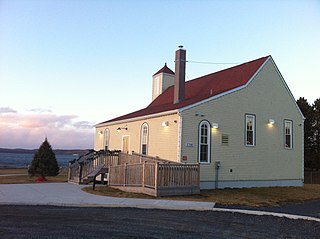 W
WThe Africville Apology was a formal pronouncement delivered on 24 February 2010 by the City of Halifax, Nova Scotia for the eviction and eventual destruction of Africville, a Black Nova Scotian community.
 W
WComfort women or comfort girls were women and girls forced into sexual slavery by the Imperial Japanese Army in occupied countries and territories before and during World War II. The name "comfort women" is a translation of the Japanese ianfu (慰安婦), a euphemism for "prostitutes".
 W
WDe-Ba'athification refers to a policy undertaken in Iraq by the Coalition Provisional Authority (CPA) and subsequent Iraqi governments to remove the Ba'ath Party's influence in the new Iraqi political system after the 2003 invasion. It was considered by the Coalition Provisional Authority to be Iraq's equivalent to Germany's denazification after World War II. It was first outlined in CPA Order 1 which entered into force on 16 May 2003. The order declared that all public sector employees affiliated with the Ba'ath Party were to be removed from their positions and to be banned from any future employment in the public sector. The policy was highly controversial among American academics, institutions, government, military, and international media and debate outlets. The policy under the Coalition Provisional Authority was officially rescinded on 28 June 2004 as part of the transfer of sovereignty to the Iraqi Interim Government on 30 June 2004. However, elements of the policy continued under the Iraqi Governing Council and later under the elected Iraqi Parliament. Proponents of the policy contend that the policy effectively cleansed Iraqi society of Ba'athist influence, facilitating the creation of a democratic Iraqi government. Critics argue that the policy was not only undemocratic, but also a significant factor in the deteriorating security situation throughout Iraq.
 W
WHekima College is a Jesuit school of theology in Nairobi, Kenya, affiliated with the Catholic University of Eastern Africa. It opened in 1984 as a seminary for Jesuits studying to be priests. Since its opening, Hekima has diversified its student base. In 2004 it opened the Institute of Peace Studies and International Relations (HIPSIR).
 W
WYuri Kochiyama was an American civil rights activist. Influenced by her Japanese-American family's experience in an American internment camp, her association with Malcolm X, and her Maoist beliefs, she advocated for many causes, including black separatism, the anti-war movement, reparations for Japanese-American internees, and the rights of political prisoners.
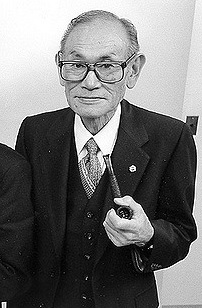 W
WFred Toyosaburo Korematsu was an American civil rights activist who objected to the internment of Japanese Americans during World War II. Shortly after the Imperial Japanese Navy launched its attack on Pearl Harbor, President Franklin D. Roosevelt issued Executive Order 9066, which authorized the removal of individuals of Japanese ancestry living on the West Coast from their homes and their mandatory imprisonment in internment camps, but Korematsu instead challenged the orders and became a fugitive.
 W
WLustration is the purge of government officials in Central and Eastern Europe. Various forms of lustration were employed in post-communist Europe and more recently in Ukraine.
 W
WManzanar is the site of one of ten American concentration camps, where more than 120,000 Japanese Americans were incarcerated during World War II from March 1942 to November 1945. It is located at the foot of the Sierra Nevada mountains in California's Owens Valley, between the towns of Lone Pine to the south and Independence to the north, approximately 230 miles (370 km) north of Los Angeles. Manzanar means "apple orchard" in Spanish. The Manzanar National Historic Site, which preserves and interprets the legacy of Japanese American incarceration in the United States, was identified by the United States National Park Service as the best-preserved of the ten former camp sites.
 W
WNisei is a Japanese-language term used in countries in North America and South America to specify the ethnically Japanese children born in the new country to Japanese-born immigrants. The Nisei are considered the second generation, and the grandchildren of the Japanese-born immigrants are called Sansei, or third generation.
 W
WThe Post-Conflict Research Center (PCRC) is a Sarajevo-based non-governmental organization, which aims to nurture an enabling environment for sustainable peace and facilitate the restoration of inter-ethnic relationships in Bosnia-Herzegovina. PCRC's expertise consists of innovative multimedia projects and creative educational curricula that engage youth in fostering long-lasting tolerance, mutual understanding, and social activism in the Western Balkans region. The Center’s overall mission is to build a robust network empowering youth with transferable skills and resources to spread an all-encompassing culture of peace among the many ethnic groups composing the country. PCRC’s overall strategy encompasses six core areas of operation: creative multimedia, preventing genocide, mass atrocities & violent extremism, peace education, transitional justice, post-conflict research and consultancy.
 W
WRight to truth is the right, in the case of grave violations of human rights, for the victims and their families or societies to have access to the truth of what happened. The right to truth is closely related to, but distinct from, the state obligation to investigate and prosecute serious state violations of human rights. Right to truth is a form of victims' rights; it is especially relevant to transitional justice in dealing with past abuses of human rights. In 2006, Yasmin Naqvi concluded that the right to truth "stands somewhere on the threshold of a legal norm and a narrative device … somewhere above a good argument and somewhere below a clear legal rule".
 W
WIn the U.S. state of Hawaii, the Hawaiian sovereignty movement is a grassroots political and cultural campaign to establish an autonomous or independent nation or kingdom of Hawaii due to the desire for sovereignty, self-determination, and self-governance. Some groups also advocate for some form of redress from the United States for the 1893 overthrow of Queen Lili'uokalani, and for what is described as a prolonged military occupation beginning with the 1898 annexation. The movement generally views both the overthrow and annexation as illegal. Palmyra Island and the Stewart Islands were annexed by the Kingdom in the 1860s and are regarded by the movement as being under illegal occupation along with the Hawaiian Islands. The Apology Resolution passed by the United States Congress in 1993 acknowledged that the overthrow of the Kingdom of Hawaii in 1893 was an illegal act.
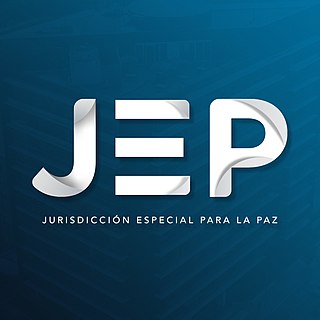 W
WThe Special Jurisdiction for Peace, also known as Special Justice for Peace, is the Colombian transitional justice mechanism through which FARC members, members of the Public Force and third parties who have participated in the Colombian armed conflict are investigated and put into trial.
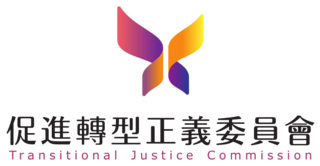 W
WThe Transitional Justice Commission is an independent government agency of the Republic of China (Taiwan), established by the Act on Promoting Transitional Justice on 31 May 2018. The commission is responsible for the investigation of actions taken by the Kuomintang between 15 August 1945 and 6 November 1992. The commission's main aims include: making political archives more readily available, removing authoritarian symbols, redressing judicial injustice, and producing a report on the history of the period which delineates steps to further promote transitional justice.
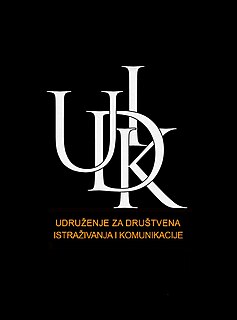 W
WUDIK, the Association for Social Research and Communications, is a Bosnian regional non-governmental organization with offices in Sarajevo and Brčko. It was founded in 2013 by Edvin Kanka Ćudić that aimed to gather facts, documents, and data on genocide, war crimes, and human rights violations in Bosnia and Herzegovina and the former Yugoslavia.